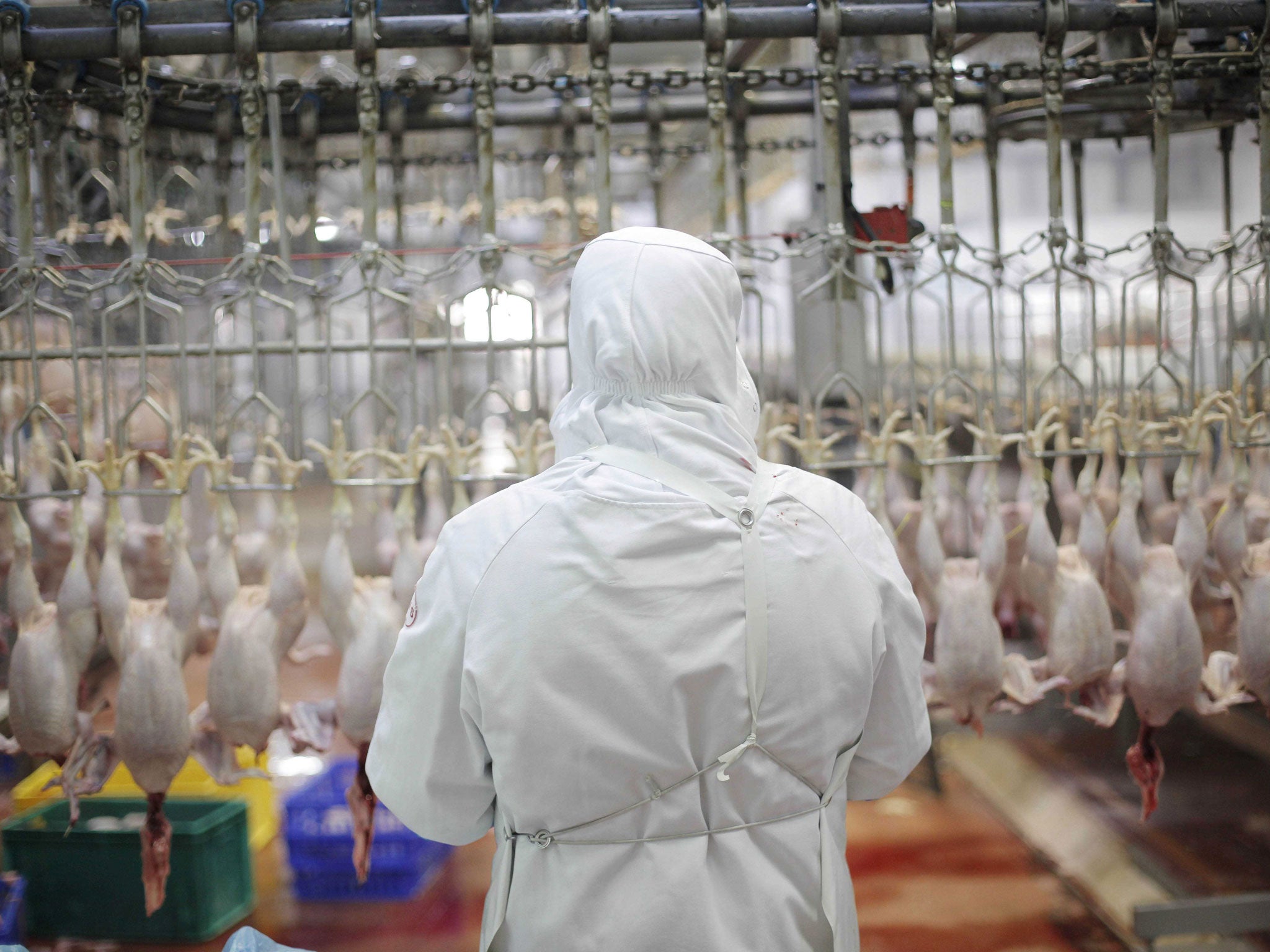What is halal meat and why is it controversial?
Undercover filming has exposed animal rights abuses at a halal abattoir, leading to more calls from campaigners to end religious exemptions

Undercover filming has exposed seemingly horrific animal rights abuses in a halal meat abattoir, but what is halal food? And why has it got campaigners increasingly agitated?
What does 'halal' mean?
Halal means “permissible” in Arabic and is used as a label for food which adheres to the rules set out in the Koran.
What does halal meat entail?
For the meat to be “permissible” – according to Islamic law – it must have conformed to the following:
The animal must be alive and healthy at the time of the slaughter. Beasts (or poultry) must be killed through a cut to the jugular vein, carotoid artery and windpipe.
Warning: Contains graphic footage
What’s the problem?
Problems arise over the issue of whether or not it is religiously permissible to stun the animal prior to killing it.
According to the Halal Food Authority (HFA), a non-profit organisation that monitors adherence to Halal principles, stunning cannot be used to kill the animals, but it is permissible should the animal survive and is then killed by halal methods.
How many halal animals are stunned?
84 per cent of cattle, 81 per cent of sheep and 88 per cent of chickens slaughtered for halal meat were stunned before they died – according to UK Food Standards Agency figures from 2011.
Are halal abattoirs subject to the same laws as other abattoirs?
Yes, within the EU it has been mandatory since 1979 to stun animals before they are killed, although countries can grant exemptions for religious slaughter.
The UK is among those countries that allows exemptions on religious grounds. It is this caveat that has many campaigners so exercised. But, in return, there are actually more regulations in place governing the handling of animals that will not be stunned when slaughtered
So the debate boils down to whether or not halal meat is stunned (or not) prior to killing?
Correct. Animal campaigners feel that slaughter without pre-stunning causes “unnecessary suffering,” according to the RSPCA.
Their view is backed up by The British Veterinary Association (BVA), which says it believes “all animals should be effectively stunned before slaughter to improve the welfare of these animals”.
Join our commenting forum
Join thought-provoking conversations, follow other Independent readers and see their replies
Comments
Bookmark popover
Removed from bookmarks